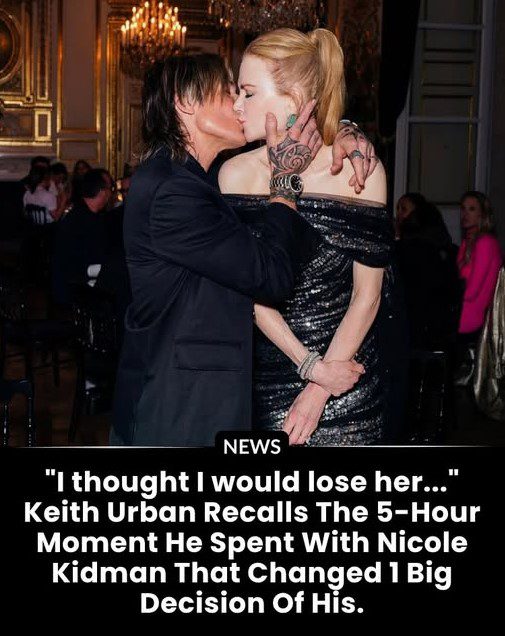
Keith Urban’s Battle with Addiction and the Turning Point
In the late months of 2006, Keith Urban faced a critical crossroads in his life. Despite achieving global fame as a country music superstar, he struggled privately with addiction, relying on substances to cope with the pressures of life offstage. Urban’s talent and success masked the inner turmoil that he grappled with daily. The artist found himself in a state of emotional vulnerability, unsure of his ability to continue managing both his career and personal life. It was during this period that a defining moment occurred—a moment that would alter the trajectory of his life entirely.
Nicole Kidman’s Unwavering Support
Nicole Kidman, Urban’s wife, played an indispensable role during this transformative period. Her support was neither superficial nor fleeting; she demonstrated an extraordinary level of patience and empathy. One evening, recognizing the depth of Urban’s struggle, Kidman sat with him for five uninterrupted hours. During this time, she listened attentively, offering unwavering emotional support without judgment or interruption. This extraordinary act of devotion forced Urban to confront the possibility of losing not just his career stability, but the woman who had become the cornerstone of his personal life.
The Five-Hour Moment That Sparked Change
That five-hour conversation became a pivotal turning point. Urban faced the stark reality that his addiction threatened everything he valued most. Kidman’s presence and unwavering love served as both a mirror and a motivator, compelling him to evaluate his choices and the consequences of his actions. It was in that intense and vulnerable exchange that Urban fully recognized the necessity of seeking professional help. The depth of Kidman’s commitment highlighted the power of unconditional love and the importance of having a support system in moments of crisis.
Keith Urban’s Path to Recovery
Following this critical night, Urban made the decisive step to enter the Betty Ford Center, marking the beginning of his structured recovery journey. This decision was a significant milestone in his life, demonstrating courage and self-awareness. Urban has since credited this period of his life for reshaping both his personal and professional trajectory. The experience instilled in him a renewed sense of purpose, emotional resilience, and a deeper appreciation for relationships and family.
Impact on Music and Legacy
Urban’s journey through recovery and the lessons learned from Kidman’s steadfast support have profoundly influenced his music. Songs such as “Thank You,” “Blue Ain’t Your Color,” and “Parallel Line” reflect themes of gratitude, reflection, and emotional depth. This period of introspection allowed Urban to channel his experiences into creative expression, solidifying his legacy as an artist who not only entertains but resonates deeply with his audience. The five-hour moment stands as a testament to the transformative power of love, intervention, and self-realization, shaping Keith Urban’s life and career in ways that continue to inspire fans worldwide.